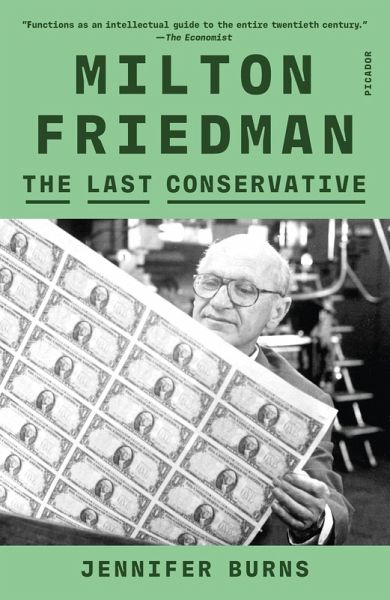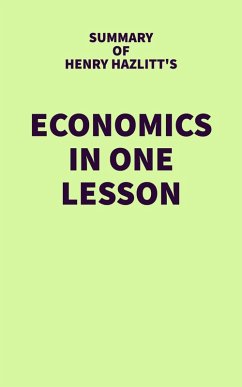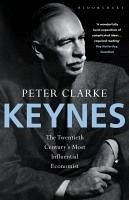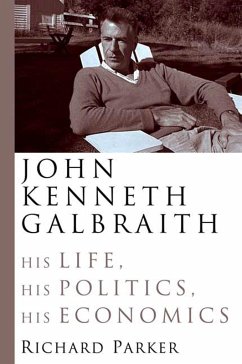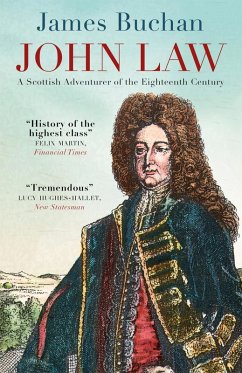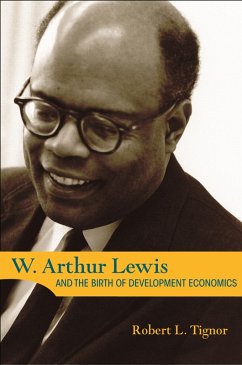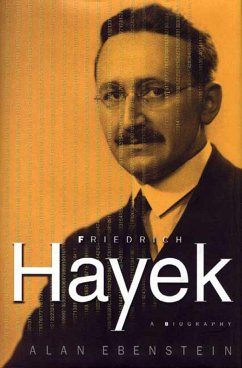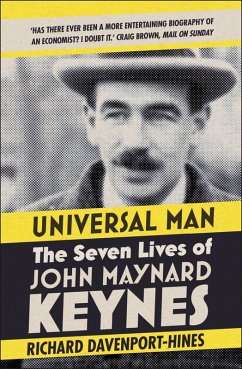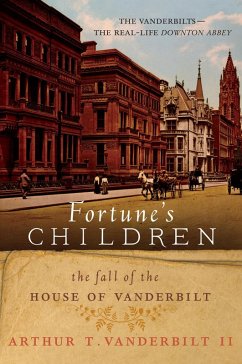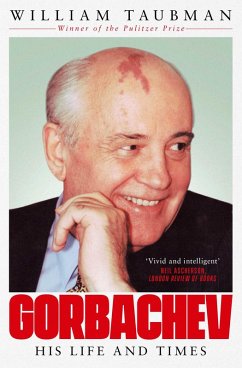"Burns shows that the ideas of Milton Friedman are still shaping our world. Wherever you sit on the political spectrum, there's a lot to learn from this book. More than a biography of one controversial person, it's an intellectual history of twentieth century economic thought." -Greg Rosalesky, Planet Money (NPR)
"[Burns makes] the case in her intriguing biography Milton Friedman: The Last Conservative that Friedman's legacy cannot be shaken so easily . . . Friedman's thought, she argues, is more complex and subtle than has been understood: He raised pressing questions about the market, individualism, and the role of the state that will be with us for as long as capitalism endures. Burns's effort to recast the
brash economist as a nuanced analyst usefully situates him in his 20th-century context." -Kim Phillips-Fein,
The Atlantic"Burns had full access to Friedman's papers stored at Stanford's Hoover Institution; she has interviewed many of Friedman's friends, colleagues and competitors; and she is plainly an authority on the at times highly abstruse subjects of economic theory and monetary policy. [
Milton Friedman: The Last Conservative] is a tremendous scholarly accomplishment." -Barton Swaim,
The Wall Street Journal"Burns adds color and light in this first critical biography of the man to be grounded in the archives, including personal papers. As Burns's fluid prose makes clear, Friedman's contributions to economics were fundamental . . . Burns's book is not just a definitive biography of an influential economist but also an account of the development of economics as a discipline and a tool of public policy over the twentieth century." -Barry Eichengreen,
Foreign Affairs"Burns's book functions as an intellectual guide to the entire 20th century, benefiting from nearly a decade of archival research." -
The Economist"Illuminating . . . Capacious . . . A triumph of the biographical art . . . [Burns] deliver[s] a comprehensive portrait of Friedman, his times, and his legacy." -Steven F. Hayward,
Claremont Review of Books"Burns has a rare ability to wield economic terms and concepts clearly and precisely, without either dumbing them down or resorting to phony erudition. Rather than simply tell us that Friedman was marked by an early reading of Alfred Marshall, she will tell us what is
in Alfred Marshall and where it shows up in Friedman's work. In explaining how Friedman's ideas of the Fed's role differed from those of his rivals, she explains what "open market operations" are, what a "primary dealer" is, what the "federal funds rate" is, and so on. The arguments are both sophisticated and easy to follow." -Christopher Caldwell,
First Things"[Burns] presents not only a well-researched and nuanced biographical sketch of Milton Friedman, but also, in tracing his influence, a riveting tour de force of economic history across the twentieth century." -Robert Steven Mack,
The New Criterion"Enriched by access to Friedman's papers [. . .], Burns pulls together in satisfying fashion details of Friedman's life that formerly lay scattered. She also provides the academic background with a compelling portrait of Friedman's first revolution [at] the University of Chicago. Her analysis of how Friedman and his allies made price theory king at Chicago is not to be missed. Nor are the stories." -Amity Shlaes,
National Review"A most delightful and informative biography . . . If one has a yen for matters political economic, [this book is] beautifully researched candy." -Brian Domitrovic,
Forbes"A testament to the power of ideas... Friedman's life never drags. Although large sections of the book deal with abstract economic theory and complicated technical matters that were the subject of immense debate between Friedman and various academic and professional economists, Burns manages to make them compelling to a lay reader because she puts them in human terms." -Max Blaisdell,
Chicago Reader"Jennifer Burns manages in her new biography the near-impossible feat of doing justice to Friedman, both as an economist and more widely as - to quote the book's title in a nod to how US conservatism has been degraded in the era of Trump - "the last conservative"... Burns is superb at explaining complicated economic ideas... Burns has written a wonderful biography, but it is more than that. It is an intellectual history of the US in the last 70 years of the 20th century and, as such, is an important read." -Stephen Pollard,
Jewish Chronicle"[A] definitive biography... Burns does a wonderful job of explaining the methodological importance of Friedman's thought... Burns' masterful biography of Milton Friedman is more than an intellectual portrait. It's a rich reminder of how ideas, historical context, and personal relationships shape the world we make." -Michael Peterson, American Institute for Economic Research
"The first full-scale account of [Friedman's] personal and professional life, impact and legacy. Richly detailed, well-informed and informative, judicious and accessible, Burns' book is also, in essence, a primer on economics over the last century . . . Burns makes a compelling case that Friedman continues to cast a long shadow on economic and social policy." -Glenn Altschuler,
The Messenger"Deeply researched and beautifully written, [
Milton Friedman] makes the personal and intellectual life of Friedman jump off the page. Burns not only captures Friedman's life but conveys in her telling of that story the broader intellectual life of America and the global political and economic order of the 20th century . . . A brilliant book, written by a first-rate scholar in accessible and graceful prose." -Peter Boettke,
National Review"[An] excellent new biography . . .
Milton Friedman: The Last Conservative shines as an exploration of Friedman's ideas and accomplishments." -Brian Doherty,
Reason"A marvelous new biography... the book can also be read as a tour of the broader debate about capitalism, as seen through the eyes of a man who had an unwavering view from the start... Thanks to Burns [...] we have the building blocks for a less reductive narrative about the marketplace of ideas and ideas about the market." -Jeremy Adelman, Project Syndicate
"To call this book merely a biography of Milton Friedman is a disservice. It would be difficult to imagine a more comprehensive portrait of the influences, hard economics, and personal struggles and triumphs that shaped his life . . . [Burns] is evenhanded throughout and unafraid to critique . . . Sharp and illuminating . . . A masterful profile of a most consequential American." -
Kirkus Reviews (starred review)
"One of the most brilliant biographies of Friedman to date. For both general readers and economics scholars." -
Library Journal (starred review)
"Robust . . . A comprehensive accounting of Friedman's legacy." -
Publishers Weekly"How did Milton Friedman become Milton Friedman? Jennifer Burns offers a definitive answer to the question, deftly blending the personal and professional sides of Friedman's life to paint a full portrait of the man, his ideas, his times, and his enduring influence. Husband, father, friend, scholar, policy adviser, public intellectual, and debater, she provides the full Monty on Uncle Milty." -Bruce Caldwell, co-author of
Hayek: A Life"Jennifer Burns has written what will stand as the definitive biography of Milton Friedman. It is full of insight and excitement, and I learned many new things from it." -Tyler Cowen, co-author of
Talent and author of
Big Business"This is biography at its best: a probing, revelatory, and engrossing account of the restless intellect, extraordinary life, and controversial politics of Milton Friedman. All future reckonings with this towering and divisive figure must now start with Jennifer Burns's brilliant book." -Gary Gerstle, author of
The Rise and Fall of the Neoliberal Order"Jennifer Burns has not just written an elegantly crafted and unfailingly perceptive biography of the most influential and controversial American economist who ever lived. In narrating the long life of Milton Friedman, she has also given us a lucid history of economic thought and its outsize influence on the politics of the United States-and the world. This is a book that anyone who cares about the role of ideas in the making of the twentieth century should read and enjoy." -Michael Kazin, author of
What It Took to Win: A History of the Democratic Party"Jennifer Burns's
Milton Friedman: The Last Conservative is a stunning achievement. In addition to a beautifully crafted and deeply researched biography of Friedman, Burns has given us an education in economic history and a tour of American beliefs, fears, and hopes throughout the tumultuous 20th century. She shows how Friedman revolutionized both economics and politics, and captures the nuances of a brilliant man whose work is more often caricatured than captured. She tells the stories of the hidden figures, too; the women and men whose ideas shaped Friedman's own, but whose identities were hidden by the prejudices of their day. And she wraps this all into a complete page-turner of a book." -Debora L. Spar, author of
Work Mate Marry Love and
Wonder Women"If you love Milton, as I do, for his intellectual honesty and devotion to liberty, you can't stop reading this graceful, balanced life of the man in full. If you think you hate him, I'll bet you also can't stop reading. You'll emerge respecting him, and seeing him not as a "conservative" but as the truest liberal of modern economics." -Deirdre Nansen McCloskey, Cato Institute
"Brilliantly researched and elegantly balanced, Jennifer Burns's biography shows how Milton Friedman-argumentative, stubbornly out of step, frequently wrong and sometimes brilliantly right-became the most influential public economist of his age." -Daniel T. Rodgers, author of
Age of Fracture"Milton Friedman, like John Maynard Keynes, was a political economist concerned with public policy.
And both men's influence began in the twentieth century and continues today. But unlike Keynes,
we knew little about how Friedman's brilliance developed-until now. Read this book and learn." -William L. Silber, author of
Volcker: The Triumph of Persistence